Going through these archives, we tend to find letters and photographs written by family members who were left behind in Vietnam and even in refugee camps. They give a micro-history point of view, for example showcasing how family members try to find ways to contact one another through different mail addresses. These documents also give us insight into how political policies affected everyday people, and remind us that even those this letter was dated in 1991, 16 years after the Fall of Saigon, the repercussions of the war still lingered.
This particular letter, written by Nguyen Thi Trung Tuyen, was written to her older brother.
Courtesy of BPSOS archives, Washington D.C area // 2016. Note: We have censored the address in the letter for privacy reasons.
Vanh Hai, August 19, 1991
(Vietnam)
Dear elder brother,
Some lines to you as my greetings. Wishing you much healthy and lucky.
How about your resettlement? The family has not received your letters for a long time. Our family has now encountered many troubles. Our father is imprisoned so far. Please be much cautious, do not send to home address anymore. Communist police arrested Dad more than a month ago and do not release him yet. It is because you are now holding any high position there (in the camp) that they arrested Dad for investigation. How pitiful it was! Dad had illness but has to suffer their tortures. They said that our family has hidden your personal background. The local police does want you will repatriate and if so, they will put you in jail to death.
Receiving this letter, you should write to aunt Cuc's address, she will send your letters over to us. It is because that your family book and your house were confiscated right after you escaped (1989). Our parents had to set up a shelter connected with your house's sided-roof for living in. And your wife and children were deported to the NEZ NHIEU GIANG two years ago.
Dad is still in prison and is not released yet. We are now feeling much sorrowful because because the family consists only of our mother and me. You should pay much caution.
Please write to this address:
Wishing you a good health. May I stop here.
Your youngest sister,
Nguyen Thi Trung Tuyen.
As to whether or not he ever received this letter, we do not know. However, we do know that their father was arrested and put into a re-education camp because of the older brother's previous status or activity, and that the brother is now a wanted man in Vietnam.
Also, we find out that his wife and children were deported to an NEZ. NEZ stands for New Economic Zones, designated areas where many were relocated, often forcefully so, in order to ease urban congestion and increase agricultural output after the war. However, NEZs were often areas that were very rural and undeveloped, and very poor; being sent to an NEZ was often akin to being sent to exile (1)(2). "Between 1976 and 1990, 3.7 million people were forcibly resettled in "New Economic Zones" in the Central Highlands and the Mekong River Delta and forced to work on collectivized farms. Some suffered from starvation and extreme poverty. The conditions were so bad there that Vietnam faced a famine in 1986. This was a major reason for the economic reforms started in that year" (1).
The details in this letter underscore the risk involved not only in fleeing, but also in staying.










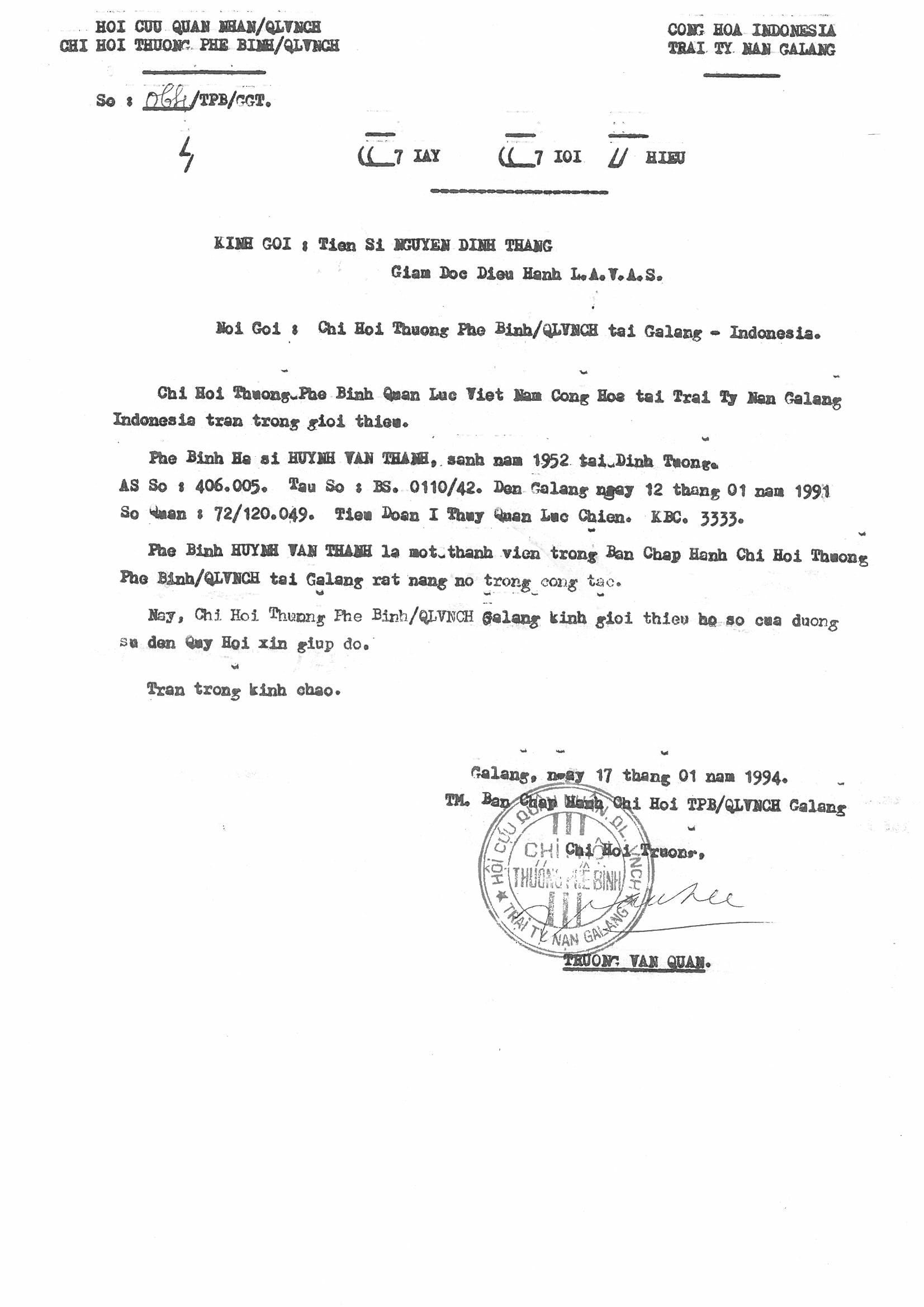
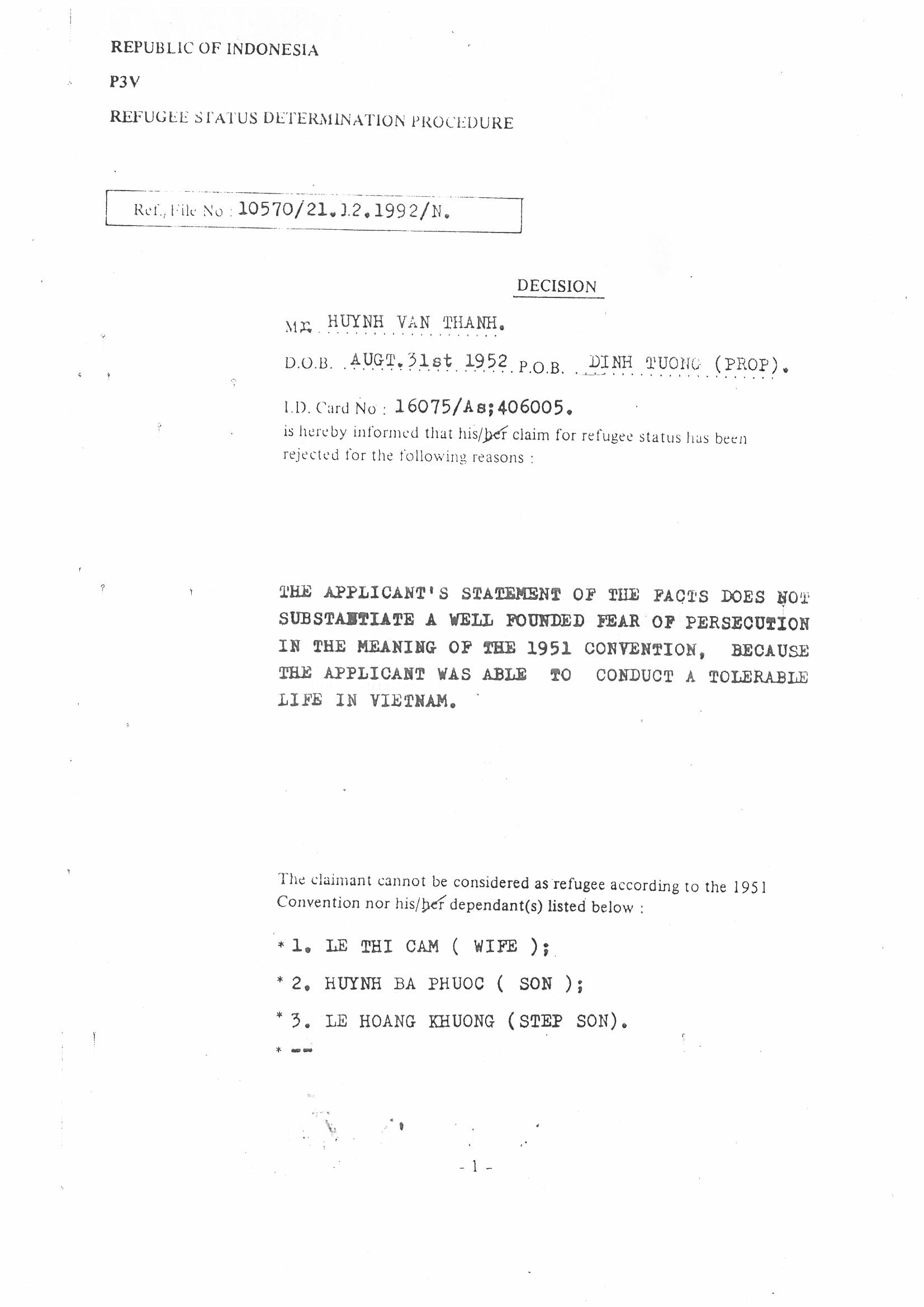
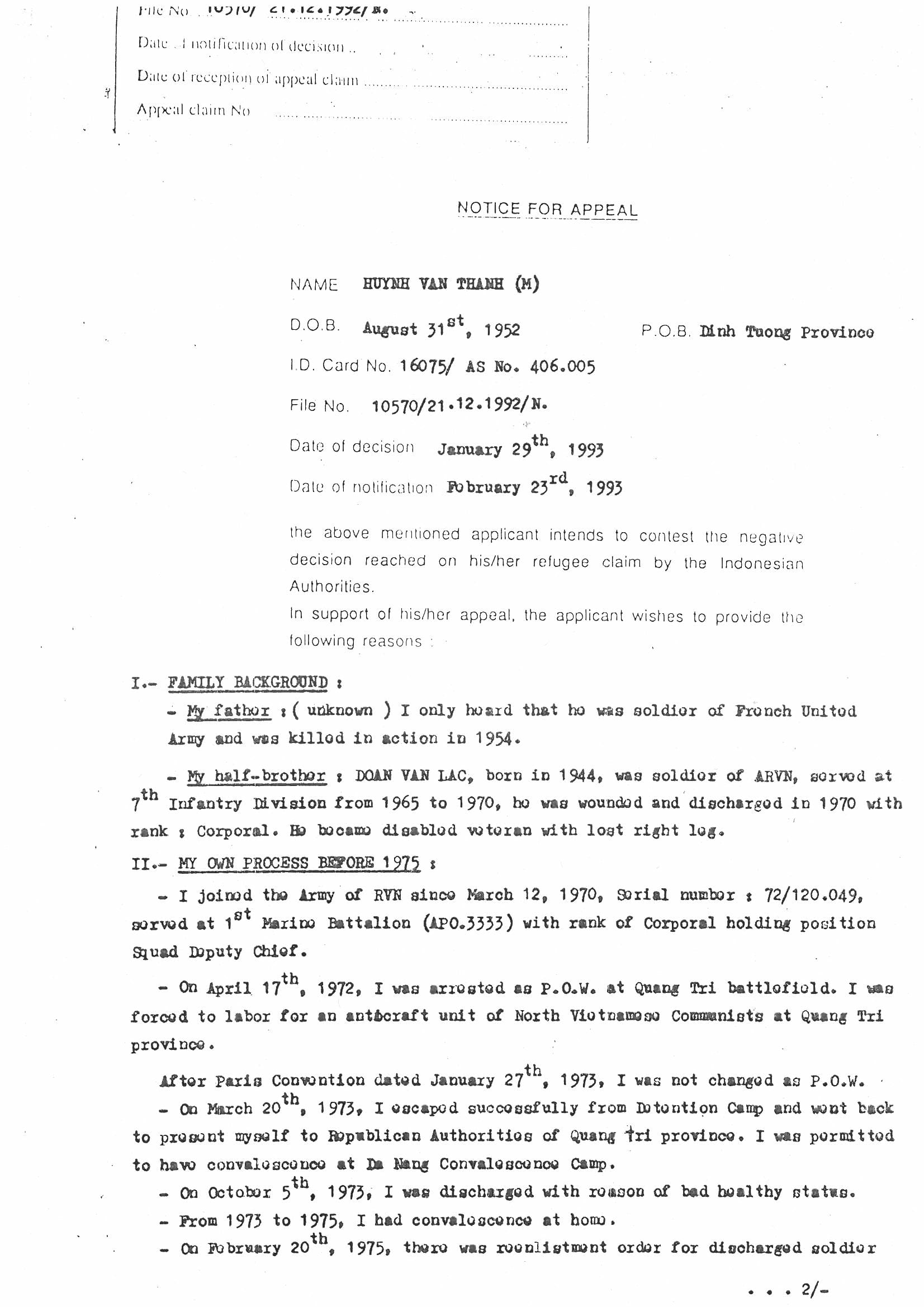
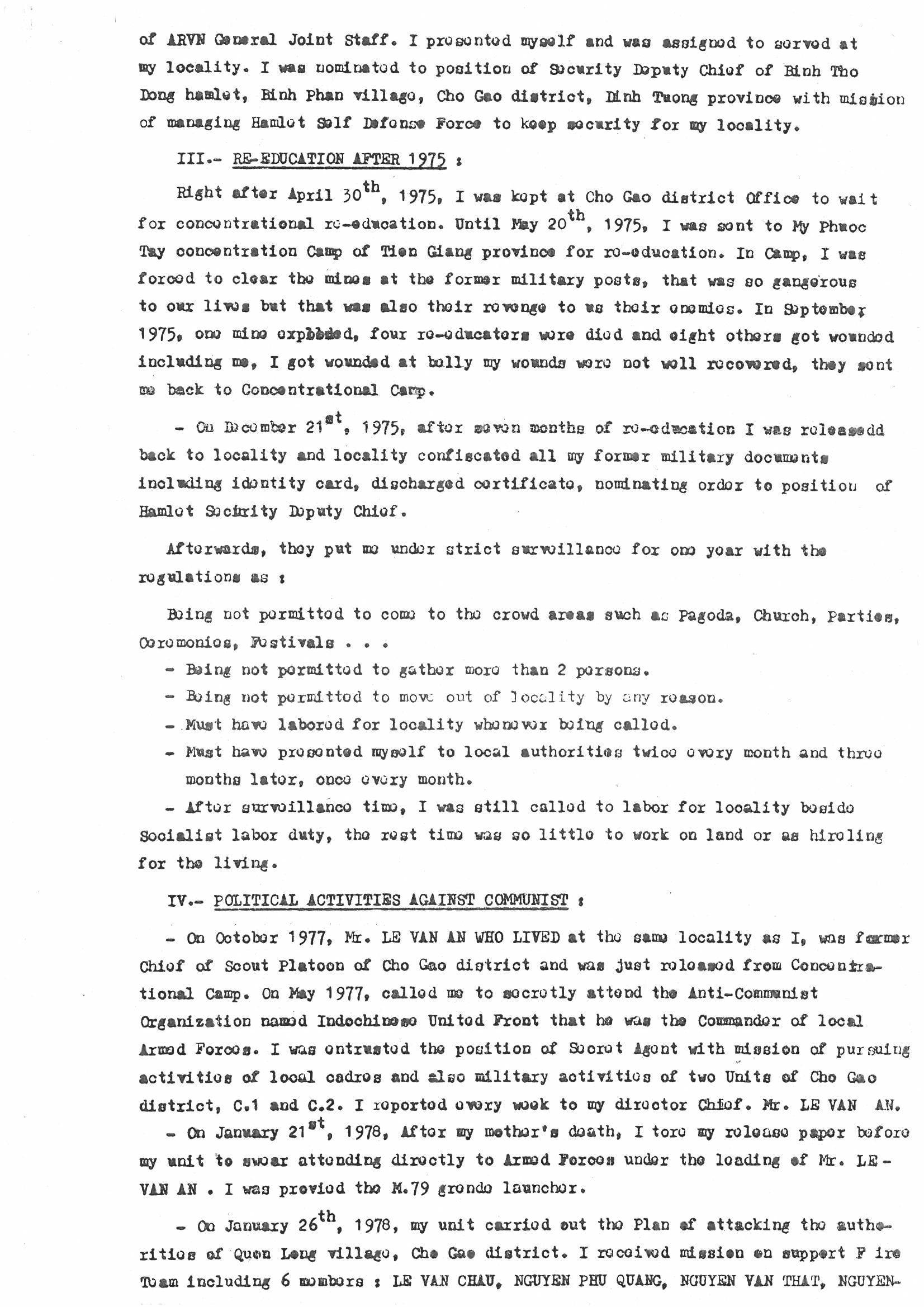
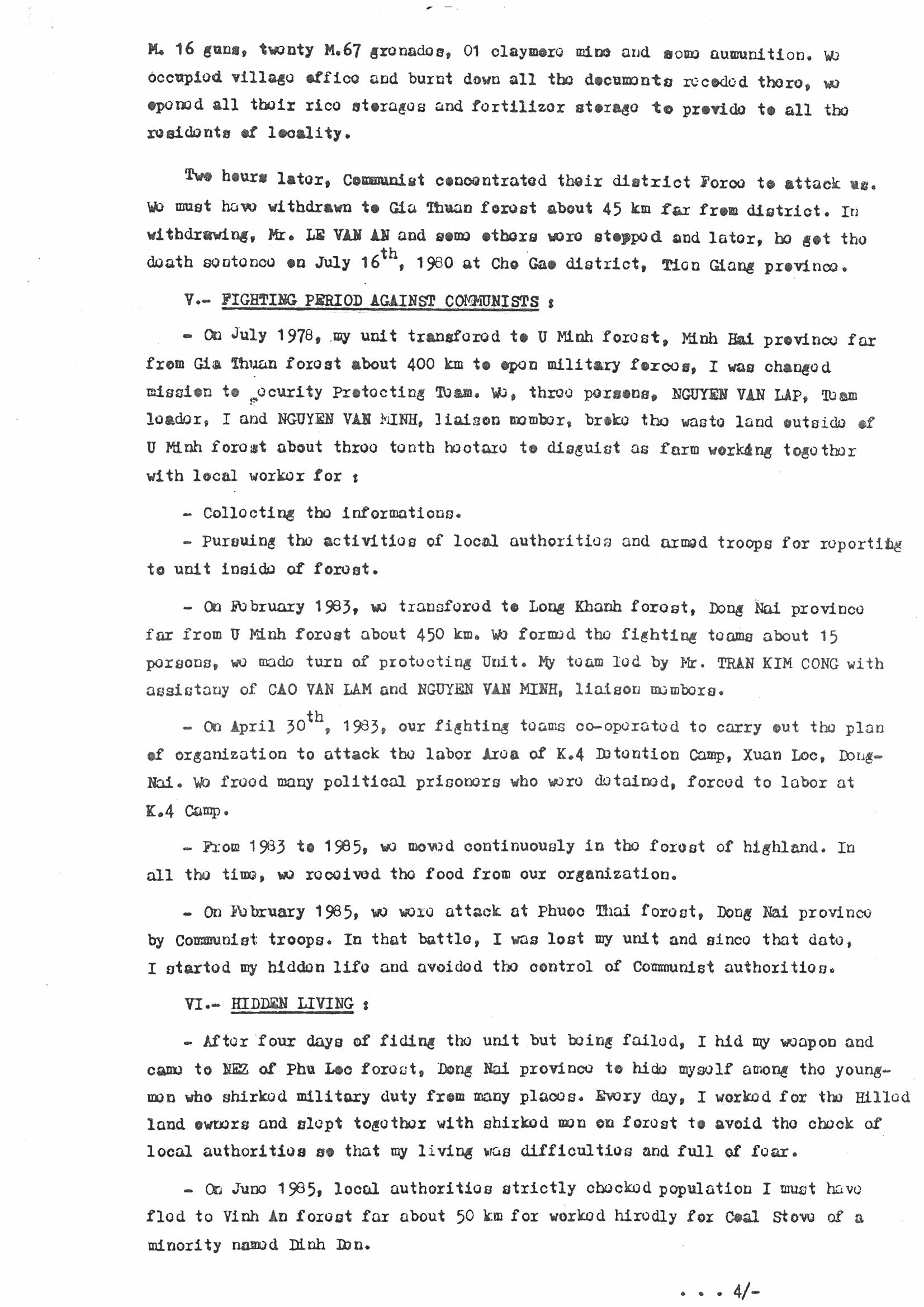
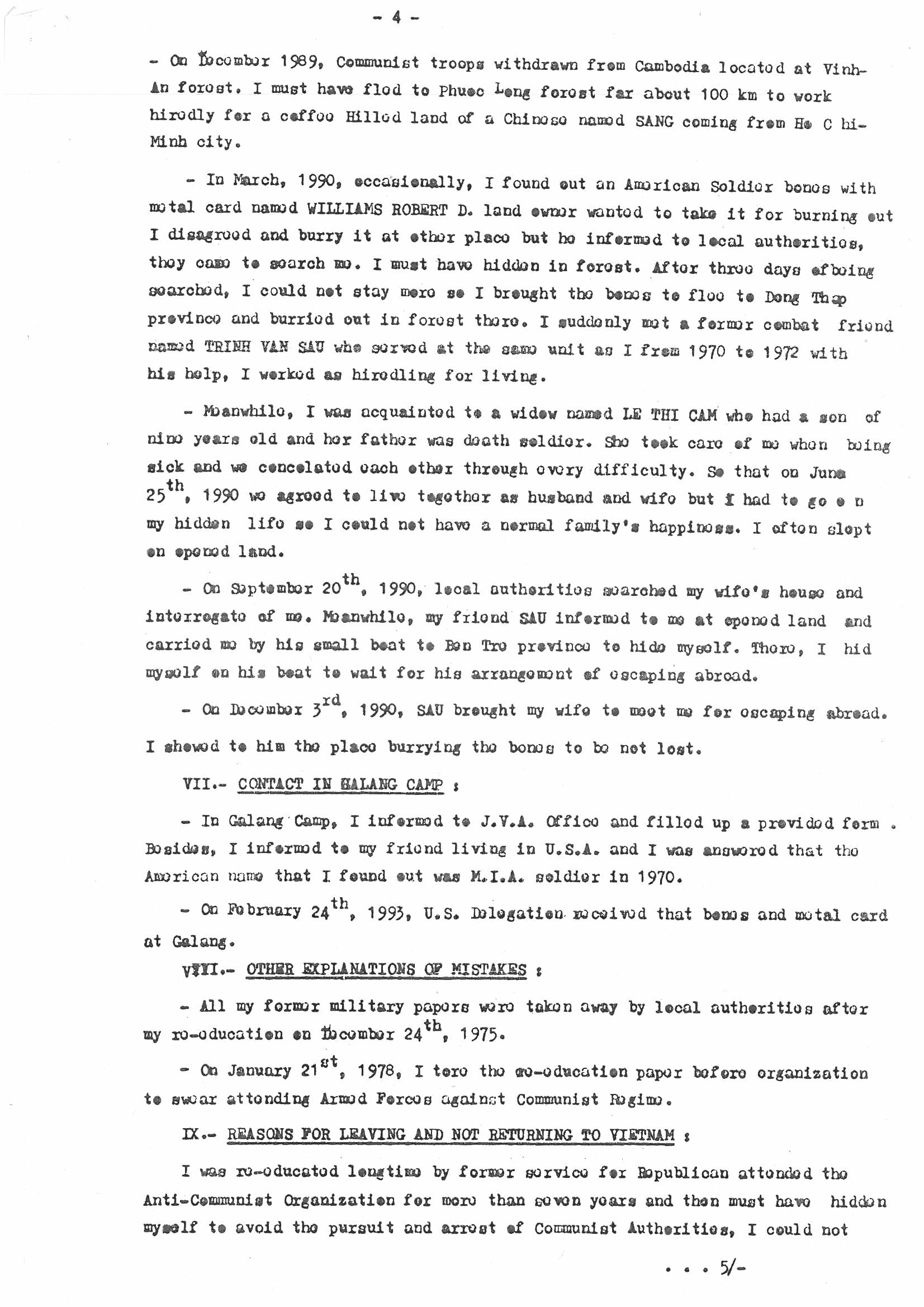
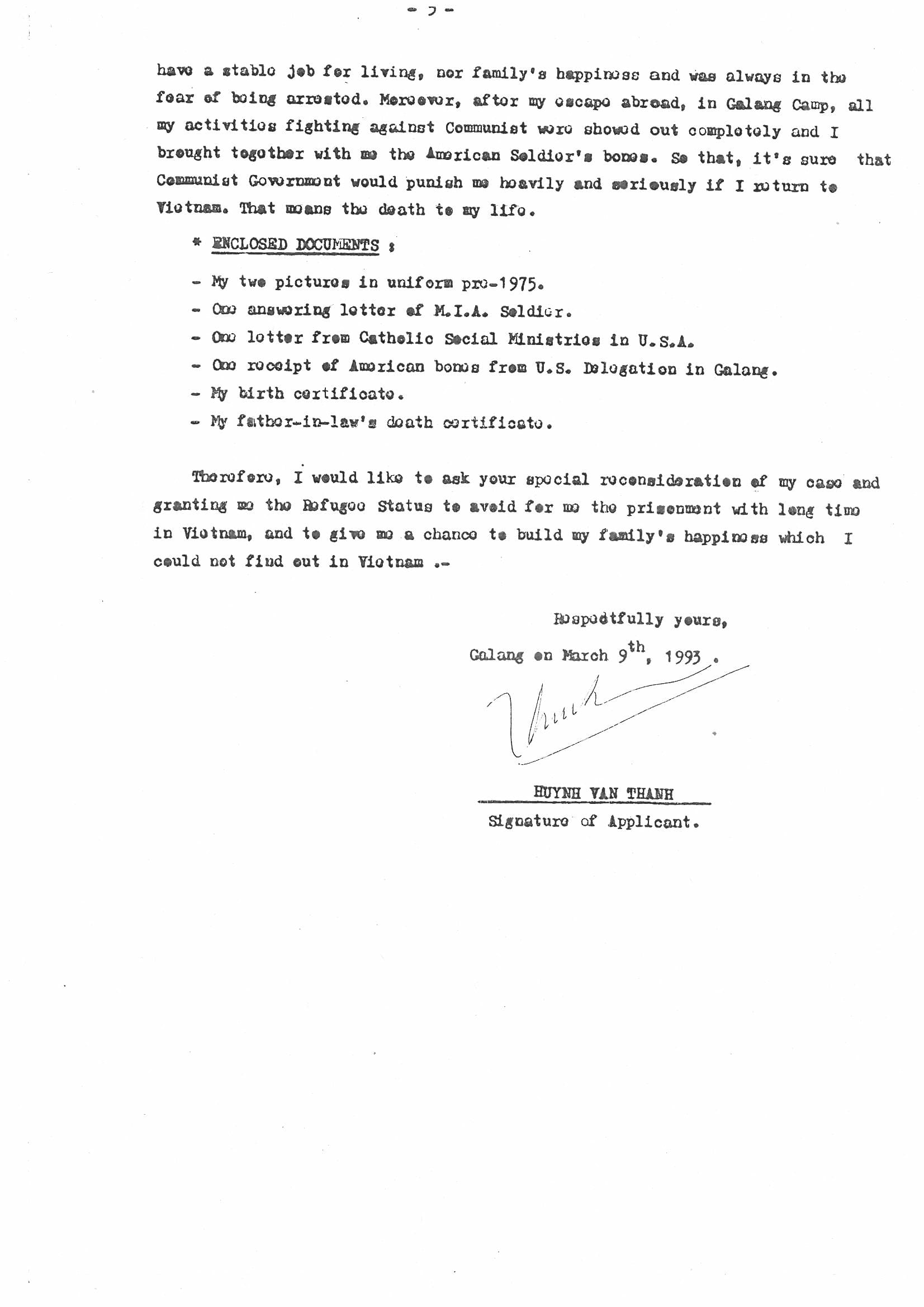
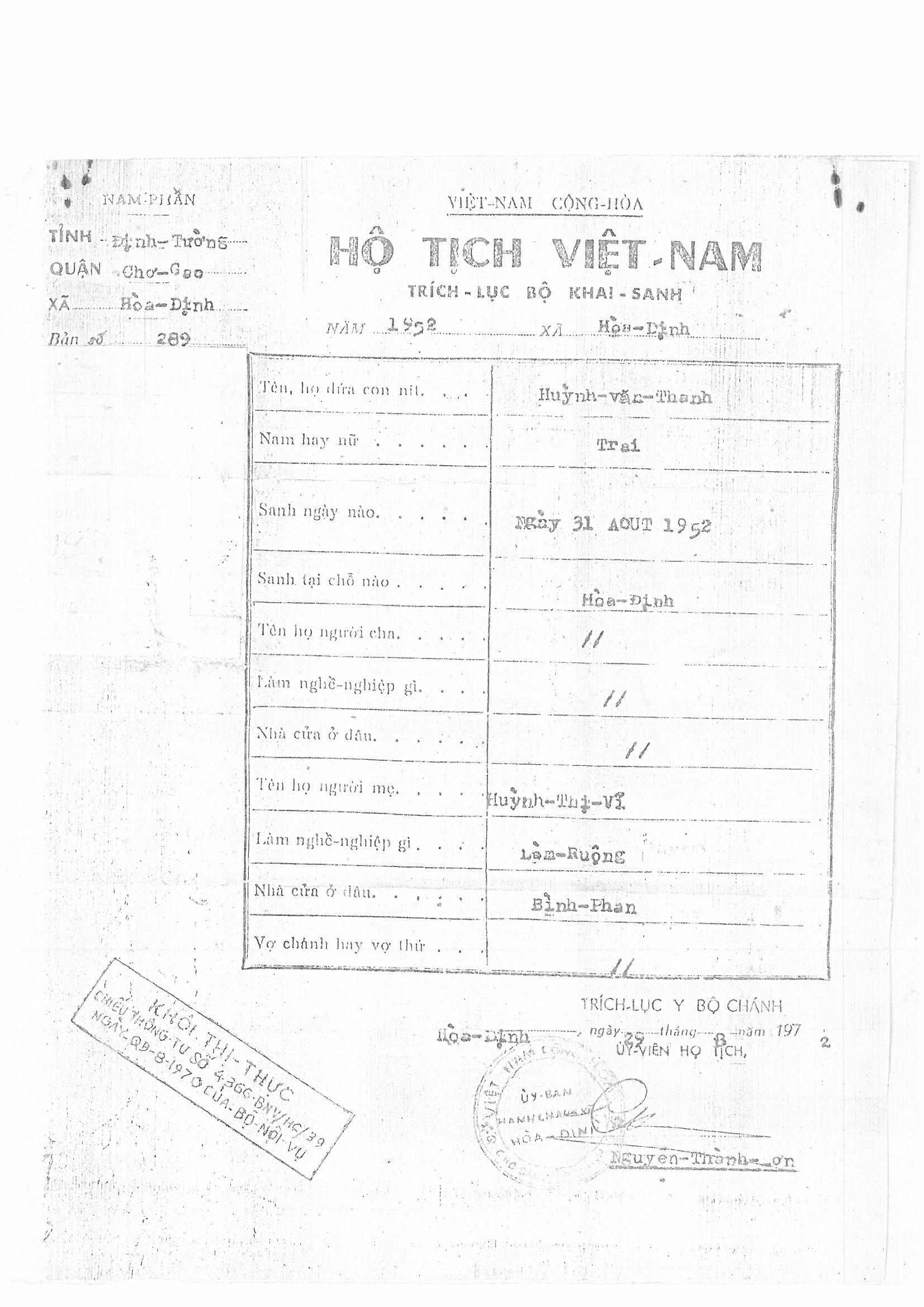
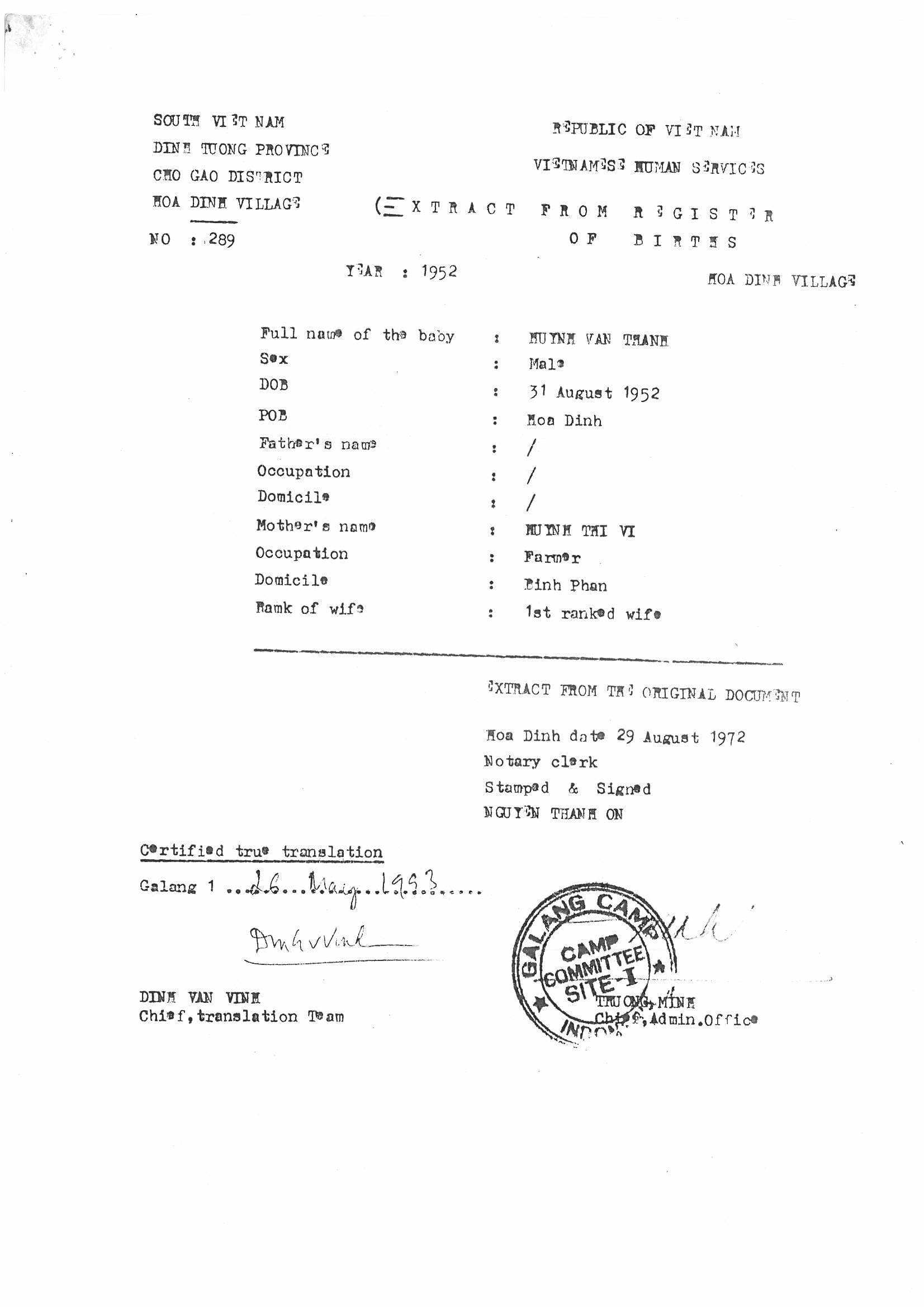
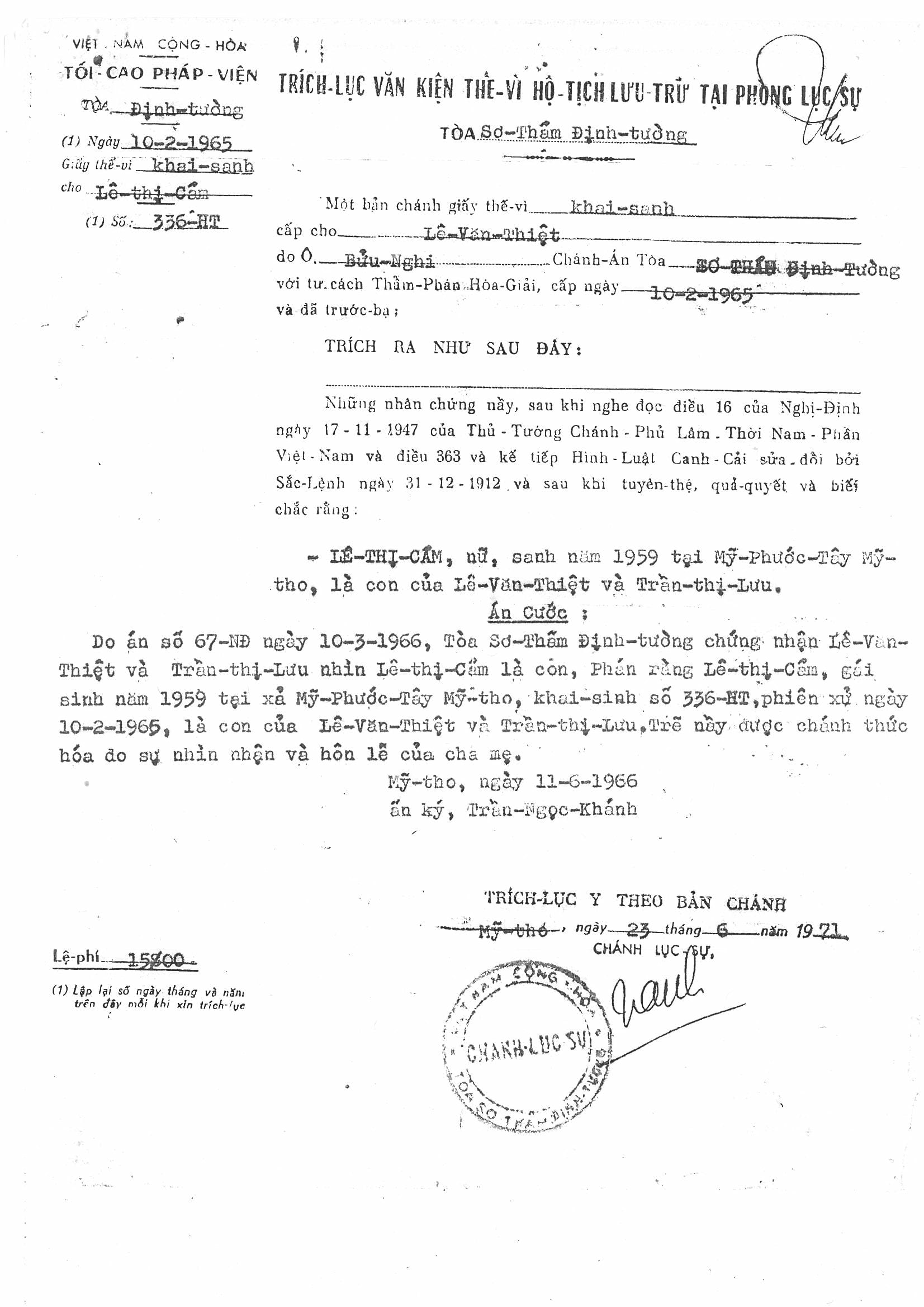
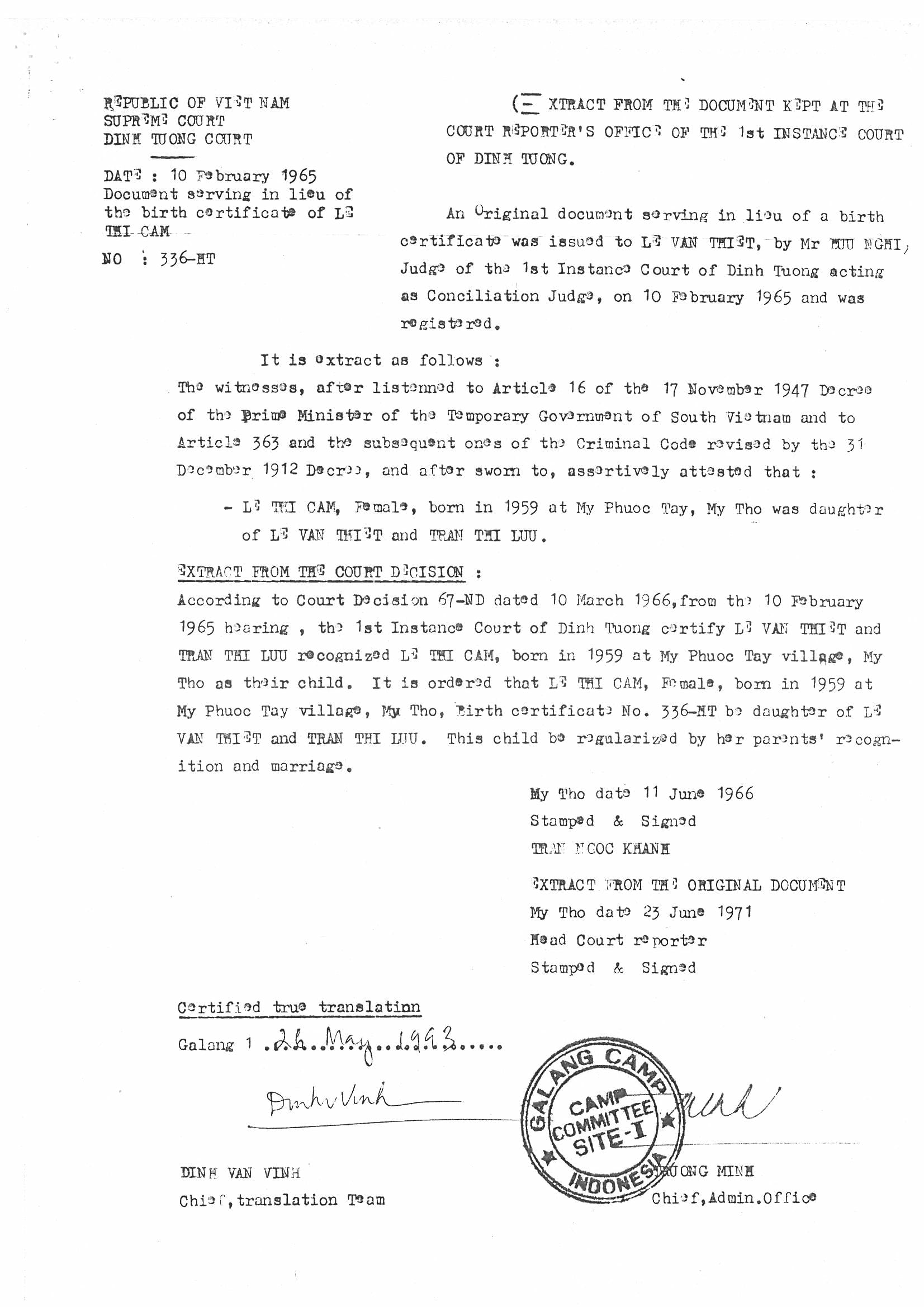
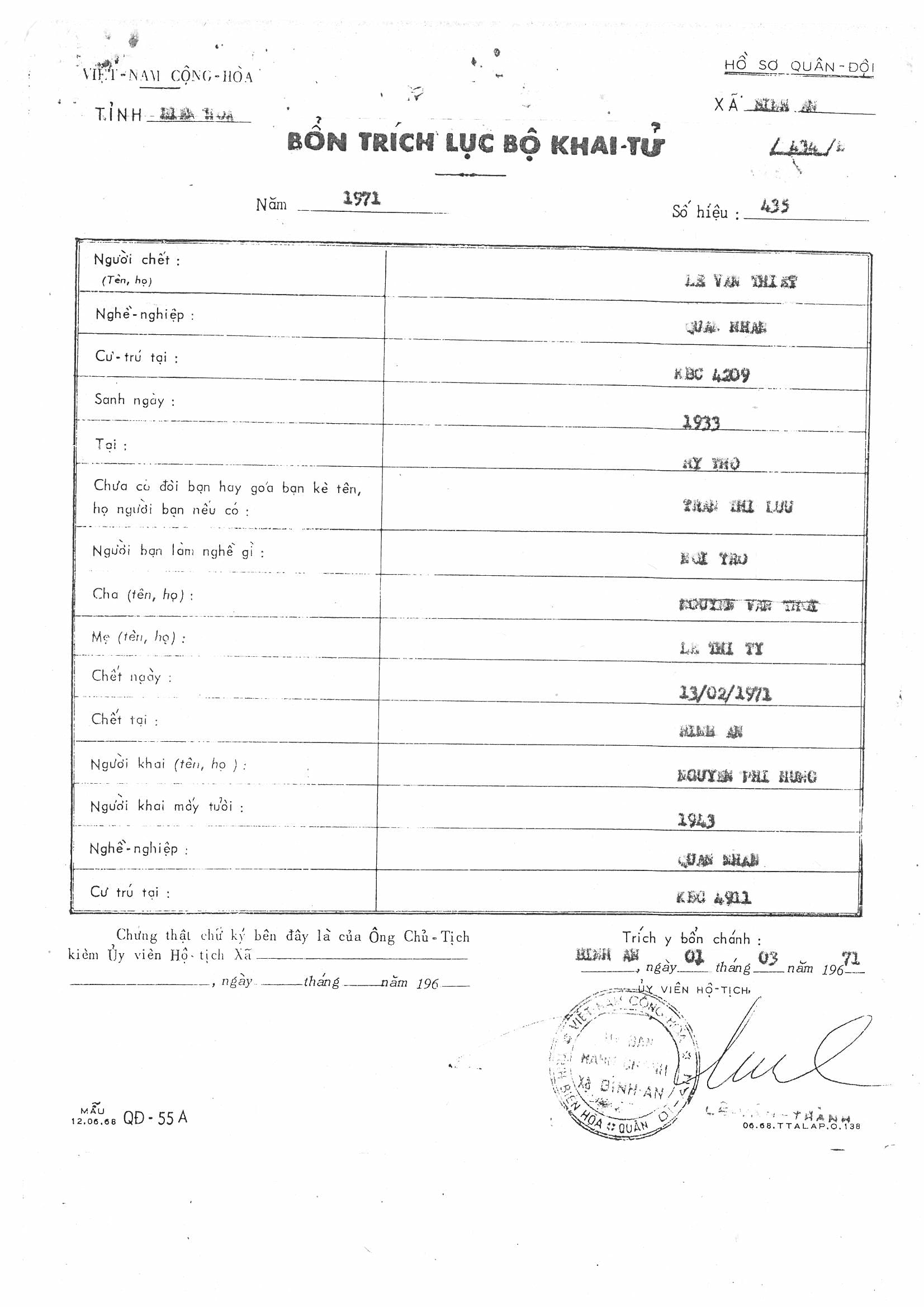
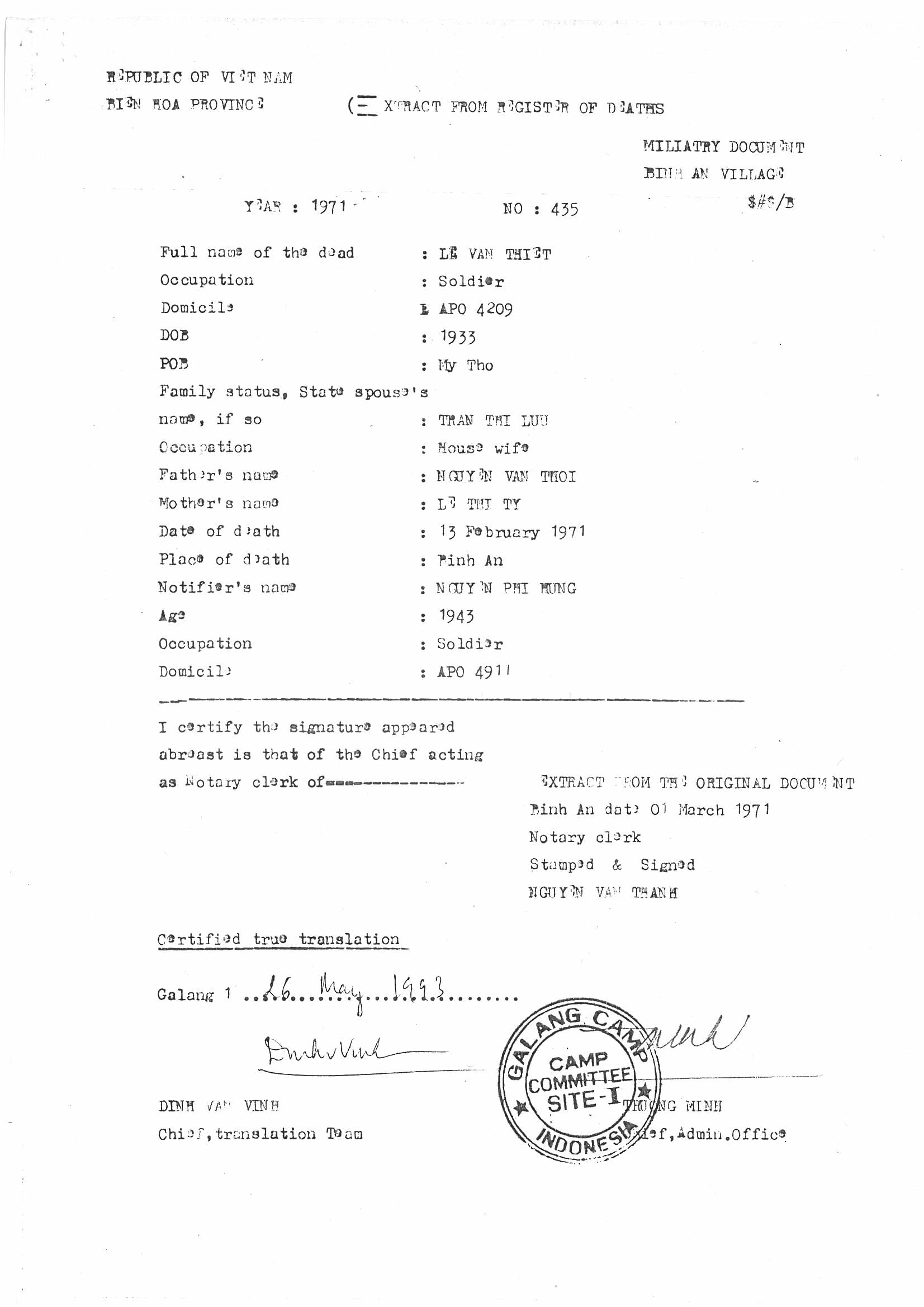



![At BPSOS there are many boxes like this containing files from individuals seeking asylum and reunification. [Credit goes to BPSOS]](https://images.squarespace-cdn.com/content/v1/562a7243e4b02df2e0cb0679/1467826855834-Z7NCJ08JW3AJIPYN0FZV/image-asset.jpeg)

![Another example of a refugee's application folder. [Credit goes to BPSOS]](https://images.squarespace-cdn.com/content/v1/562a7243e4b02df2e0cb0679/1467827688075-ZEAJK3T5T3E1XU0TWUY0/image-asset.jpeg)